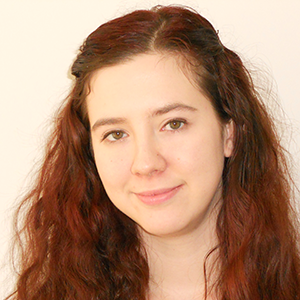Gierasch lauded as ‘rigorous biophysical chemist’ and ‘phenomenal mentor’
The American Society of Biochemistry and Molecular Biology has awarded Lila Gierasch the 2014 Mildred Cohn Award in Biological Chemistry for her extensive work in protein folding, structure and function. This award recognizes scientists who have made substantial advances in the field of biological chemistry through the use of innovative physical methods.
Gierasch’s early research into the relationship between amino-acid sequence and peptide and protein structure resulted in the development of fundamental principles for reverse-turn conformation features as well as the establishment of several biophysical methods commonly used today to characterize protein turns, such as nuclear magnetic resonance, quantitative nuclear Overhauser effects, circular dichroism and computational modeling. This research was also the basis for Gierasch’s later research using peptide fragments to examine protein recognition motifs. A major focus in Gierasch's lab has been how protein folding occurs within the cell, using transferred nuclear Overhauser effect, or trNOE, methods to show how chaperone proteins recognize the folded state of a protein substrate.
 I am thrilled to be chosen to receive the Mildred Cohn Award from ASBMB. She was one of my heroes; her contributions reflect her deep physical understanding, her experimental boldness and her willingness to deploy any biophysical approach that would answer the key questions underlying a biological system.
I am thrilled to be chosen to receive the Mildred Cohn Award from ASBMB. She was one of my heroes; her contributions reflect her deep physical understanding, her experimental boldness and her willingness to deploy any biophysical approach that would answer the key questions underlying a biological system.My laboratory’s contributions reflect the energy, creativity, enthusiasm, hard work and dedication of the wonderful students and postdocs I have worked with through the years. I thank them! In addition, thanks to many collaborators who worked with us to tackle daunting problems, who elevated our science and who shared the pleasures of garnering meaningful results. —LILA GIERASCH
“Lila is a rigorous biophysical chemist, but unlike most chemists who avoid complexity and prefer reductionist type studies, Lila’s whole career has been focused on applying chemistry and biophysical methods to the study of peptides and their role in biology as well as protein folding and trafficking in vivo,” says Jeffrey W. Kelly at The Scripps Research Institute. “Her work is insightful, revealing and is well ahead of its time.”
Some of Gierasch’s more recent work has been focused on developing and testing experimentally a computational model of cellular protein homeostasis in E. coli in collaboration with Evan Powers of The Scripps Institute. This collaboration has resulted in FoldEco, an online modeling program used to examine how protein folding in the cell is facilitated by chaperone and degradation networks. Gierasch’s lab also uses fluorescent reporters to study how protein sequence may affect protein aggregation and folding.
Gierasch earned her A.B. in chemistry in 1970 from Mount Holyoke College in South Hadley, Mass., and earned a Ph.D in biophysics from Harvard University in Cambridge, Mass., from the lab of Elkan R. Blout in 1975.
Today Gierasch is a distinguished professor at the University of Massachusetts Amherst. She has mentored many undergraduate and graduate students and postdoctoral fellows; served on many editorial advisory boards; and played leadership roles in several scientific societies.
“To me, Lila is not only an outstanding scientist who has made milestone and unique contributions to her own research field but also a phenomenal mentor who never ceases to inspire and help many of her mentees to launch success in their careers,” says Ning Zheng, Professor at University of Washington and an Howard Hughes Medical Institute Investigator. “Her achievements as a scholar, a leader and a mentor are extraordinary at every level.”
Gierasch will receive the award at the 2014 ASBMB annual meeting in San Diego, where she will give a presentation. The presentation will take place at 8:30 a.m. Monday, April 28, in Room 6A of the San Diego Convention Center.
Enjoy reading ASBMB Today?
Become a member to receive the print edition four times a year and the digital edition monthly.
Learn moreGet the latest from ASBMB Today
Enter your email address, and we’ll send you a weekly email with recent articles, interviews and more.
Latest in People
People highlights or most popular articles
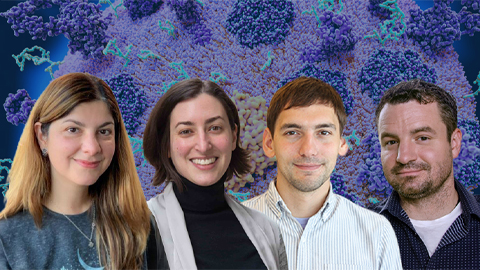
ASBMB members recognized as Allen investigators
Ileana Cristea, Sarah Cohen, Itay Budin and Christopher Obara are among 14 researchers selected as Allen Distinguished Investigators by the Paul G. Allen Family Foundation.
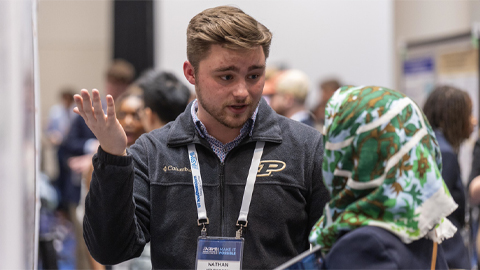
AI can be an asset, ASBMB educators say
Pedagogy experts share how they use artificial intelligence to save time, increase accessibility and prepare students for a changing world.
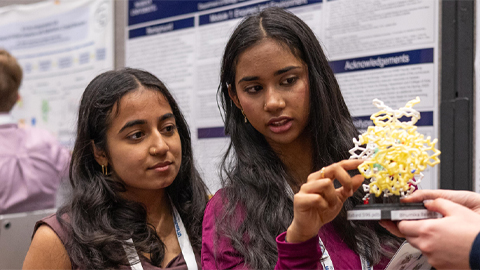
ASBMB undergraduate education programs foster tomorrow’s scientific minds
Learn how the society empowers educators and the next generation of scientists through community as well as accreditation and professional development programs that support evidence-based teaching and inclusive pedagogy.
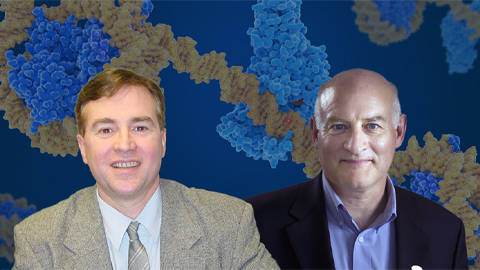
Honors for Gagna and Sundquist
Claude Gagna is being honored for the diagnostic tool he developed that uses AI to streamline diagnostics. Wesley Sundquist is being honored for his role in finding that HIV’s capsid was a target for treatment.

Gaze into the proteomics crystal ball
The 15th International Symposium on Proteomics in the Life Sciences symposium will be held August 17–21 in Cambridge, Massachusetts.
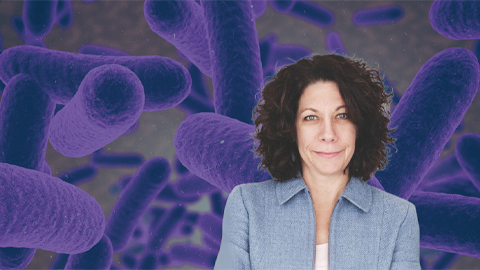
Bassler receives National Medal of Science
She was recognized for her research on the molecular mechanisms bacteria use for intercellular communication.

